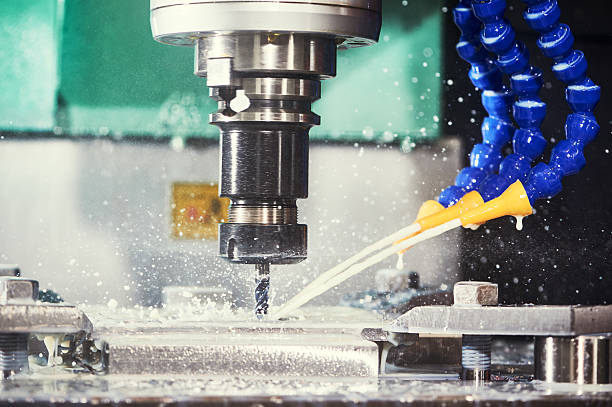With technology’s rapid evolution, CNC (Computer Numerical Control) machines are becoming increasingly accessible for hobbyists, small businesses, and large manufacturing facilities. If you’ve been considering whether to invest in a CNC machine, you’re in the right place. This comprehensive guide will help you decide if buying a CNC machine is a smart choice for your needs and goals. We’ll explore the benefits, costs, different machine types, and much more. Let’s get started!
What is a CNC Machine?
A CNC machine is a tool controlled by a computer that uses precise numerical commands to perform tasks like cutting, milling, routing, and engraving. CNC machines are capable of working with various materials, including wood, metals, and plastics. The process is known for its accuracy, repeatability, and efficiency compared to manual machining.
The Basics of CNC Machining
CNC machines interpret G-code, a standardized programming language, to determine tool movement, speed, and depth of cut. They use spindle motors, such as the 7.5KW ER32 Air-Cooled Spindle, to power the cutting tools. 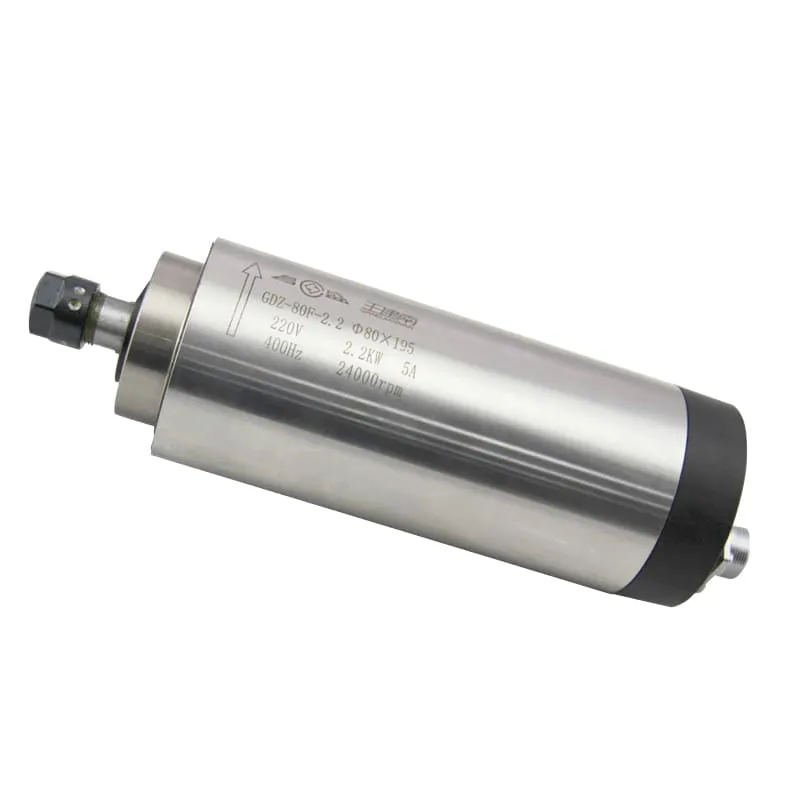
Some common types of CNC machines include:
- CNC Mills: Used for cutting and shaping metal and plastic.
- CNC Routers: Primarily used for cutting softer materials like wood, foam, and plastics.
- CNC Lathes: These machines are perfect for creating symmetrical cylindrical objects.
The versatility and precision offered by CNC machines make them essential for prototyping, woodworking, and even 3D printing components for other applications.
Benefits of Buying a CNC Machine
Investing in a CNC machine can bring numerous benefits, whether you’re a hobbyist or a business owner looking to expand your manufacturing capabilities.
Precision and Consistency
CNC machines can produce extremely precise and consistent results compared to manual machining. For instance, a CNC wood router can consistently create high-quality, intricate woodwork, allowing even a small business to compete with large-scale manufacturers.
- Repeatability: CNC machines can repeat the same operation multiple times without any variation, ensuring consistency in production.
- Reduced Errors: Because CNC machines follow computer-generated paths, they greatly minimize the risk of human error.
A spindle motor like the 24000RPM 0.8KW ER11 Water-Cooled Spindle ensures precise movement and operation, making it a valuable addition to a CNC setup for precision work. 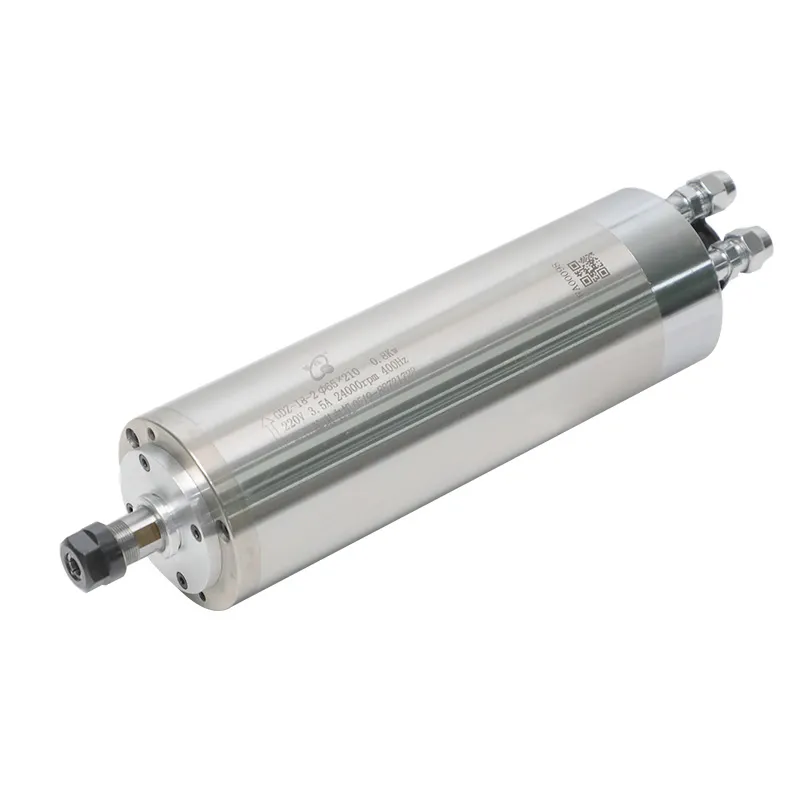
Versatility in Material Handling
A CNC machine is not limited to just one type of material. Depending on the tool setup, you can use it for:
- Woodworking: CNC wood routers are perfect for crafting cabinets, furniture, and decorative pieces.
- Metal Machining: With the right spindle, like the 5.5KW ER32 4-Pole Air-Cooled Spindle, CNC machines can cut through aluminum, steel, and other metals.
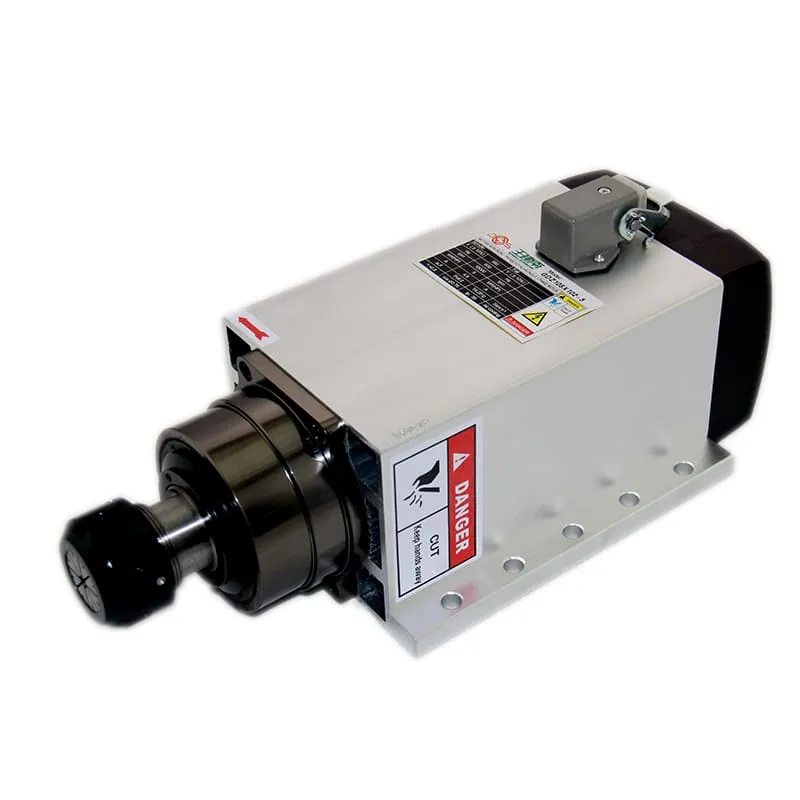
- Plastic Cutting: CNC routers can also handle plastic, making them ideal for prototype creation or artistic projects.
CNC Machine Types: Which One Should You Buy?
Understanding the different types of CNC machines will help you determine which one fits your needs. Each type has its unique capabilities and intended uses.
CNC Router
A CNC router is one of the most common types and is suitable for working with softer materials such as wood, plastic, and foam.
- Best for: Woodworking, crafting, sign-making, and prototyping.
- Features: CNC routers typically have a large bed to handle large pieces of material. They also use high-speed spindles, such as the 2.2KW ER20 Air-Cooled Spindle, which are perfect for intricate woodworking.
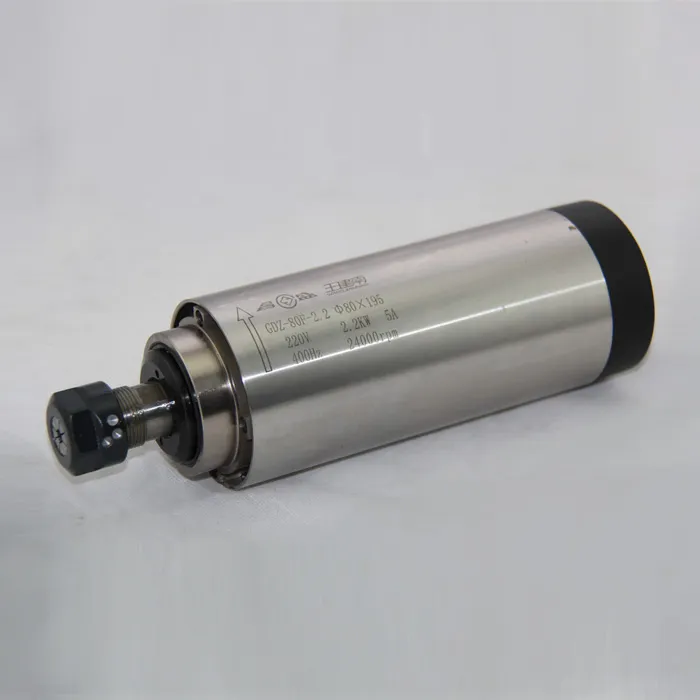
CNC Mill
CNC mills are primarily used for cutting and shaping metals. They are more robust and capable of handling harder materials compared to routers.
- Best for: Creating parts for machinery, metal tools, or custom components.
- Features: Mills have powerful motors and strong frames that help cut through metals like aluminum and steel.
CNC Laser Cutter
A CNC laser cutter is another type of CNC machine used for cutting materials with high precision using a laser beam.
- Best for: Cutting plastics, wood, and metals with intricate designs.
- Features: The cutting beam can be precisely controlled, making it ideal for engraving or cutting intricate patterns.
CNC Lathe
CNC lathes are used for turning operations, which involve rotating the workpiece and cutting it into shape.
- Best for: Creating symmetrical parts such as shafts, cylinders, and other rotational components.
- Features: Lathes are perfect for making cylindrical parts due to their design and operation.
Cost Considerations: Is Buying a CNC Machine Worth It?
The cost of CNC machines can vary greatly depending on the type, brand, and features. Understanding the costs will help you decide whether buying one is a good investment.
Upfront Costs
The initial investment includes the cost of the machine itself, software, tooling, and spindle motors. High-quality spindles like the 24000RPM 1.5KW ER11 Water-Cooled Spindle can be a significant addition to the overall cost. 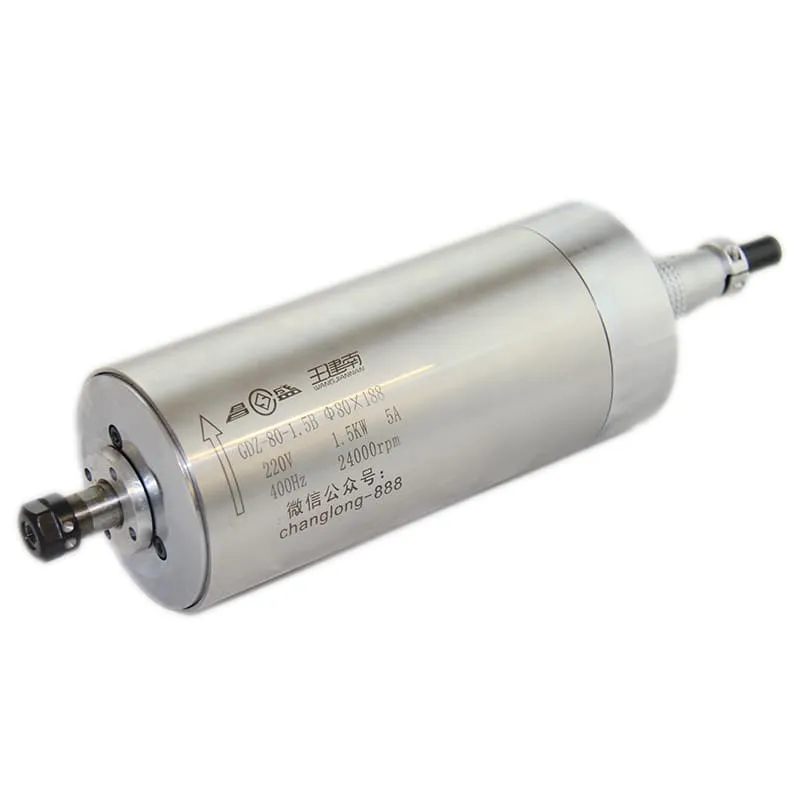
| CNC Machine Type | Average Cost (USD) |
|---|---|
| CNC Router | $2,000 – $10,000 |
| CNC Mill | $10,000 – $100,000+ |
| CNC Lathe | $5,000 – $50,000 |
| Laser Cutter | $5,000 – $30,000 |
Operating Costs
In addition to the purchase price, there are other ongoing costs to consider:
- Electricity: CNC machines, especially those with powerful spindles, consume a significant amount of electricity.
- Tooling Replacement: Cutting tools and spindles wear out and need replacement over time.
- Software Licensing: Some CAM software may require annual subscriptions.
DIY vs. Pre-Built
If you’re technically inclined, you can consider building a CNC machine from a kit. DIY CNC kits are available at a lower cost, but they require significant effort in assembly and calibration.
- Pros of DIY Kits: Lower initial investment, flexibility in customization, and a better understanding of how CNC machines work.
- Cons of DIY Kits: Requires time, effort, and some technical know-how to assemble correctly.
Applications of CNC Machines: Is It a Good Fit for You?
The versatility of CNC machines allows them to be used in a variety of industries and applications. Here are some scenarios where owning a CNC machine can be beneficial.
Hobbyists and DIY Enthusiasts
If you’re into woodworking, model building, or crafts, a CNC router can be an invaluable tool. The ability to create intricate designs on wood and plastic will elevate your DIY projects to a professional level.
Small Business Owners
For small business owners in the furniture, sign-making, or custom part manufacturing sectors, CNC machines provide the precision needed to produce high-quality products. They enable small businesses to manufacture at a scale that was previously only possible for large companies.
Manufacturing Facilities
In a manufacturing setting, CNC machines are invaluable for mass production. The precision, repeatability, and reduced human error mean that even large quantities of parts can be produced consistently.
Prototyping and Product Design
Prototyping is another common application for CNC machines. You can use CNC mills and routers to create precise prototypes for testing. The rapid turnaround time allows designers to move quickly from concept to product.
Maintenance Tips for CNC Machines
Owning a CNC machine involves a commitment to regular maintenance to ensure longevity and consistent performance.
Regular Cleaning
- Chip Removal: Chips and dust can interfere with machine accuracy. Regular cleaning with a shop vacuum is essential.
- Lubrication: Keeping the machine well-lubricated prevents wear and ensures smooth movement of parts.
Spindle Maintenance
The spindle is a critical component of any CNC machine, and proper maintenance ensures its longevity.
- Check for Wear: Inspect spindles regularly for signs of wear. A spindle like the 60000RPM 300W ER8 Water-Cooled Spindle requires consistent maintenance to keep it in top shape.
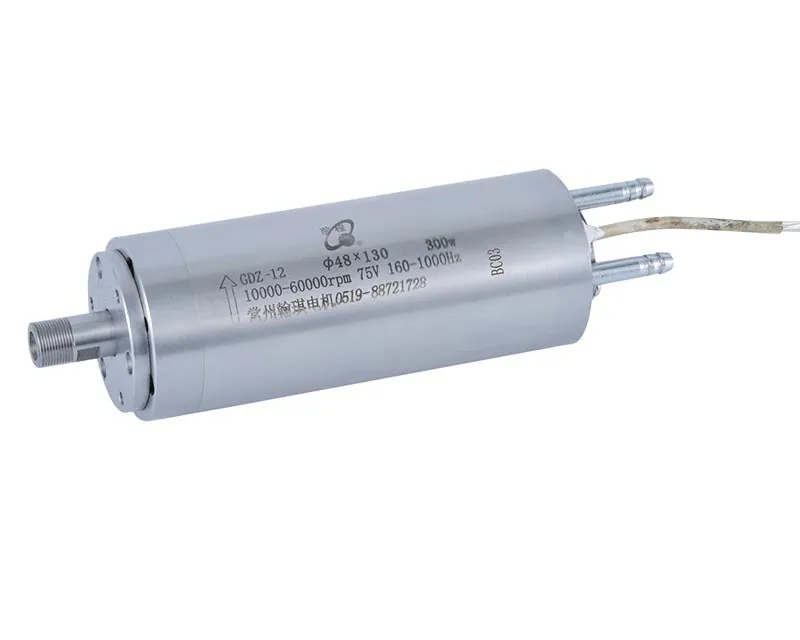
- Replace Bearings: Bearings wear out over time, and replacing them can improve spindle performance.
Calibration
- Tool Calibration: Periodically calibrate your tools to maintain accuracy.
- Software Updates: Keeping the CNC software updated ensures you have the latest features and fixes, improving the efficiency of your machine.
Should You Buy or Outsource CNC Machining?
If you find CNC machining beneficial but are unsure about making the investment, outsourcing may be an option.
Benefits of Outsourcing
- No Upfront Costs: Outsourcing removes the need for a large initial investment.
- Access to Expertise: Professional CNC shops often have state-of-the-art machines and experienced machinists.
- No Maintenance: Outsourcing eliminates the need for ongoing maintenance and repair.
When Buying is Better
Buying a CNC machine is advantageous if:
- You have consistent work that requires CNC machining.
- You want full control over production schedules and quality.
- You aim to cut costs in the long term by owning the equipment.
For those interested in buying a high-quality CNC router or mill, the range of spindle motors and components at spindlemotorshop.com can be a great place to start.
FAQs
1. What materials can a CNC machine work with?
CNC machines can handle wood, metal, plastic, foam, and even composites. The versatility depends largely on the spindle and tooling used.
2. Is it better to buy a pre-built CNC machine or build one yourself?
Buying a pre-built machine is quicker and generally more reliable, while building one provides customization and may save money if you have the necessary skills.
3. How much does a typical CNC router cost?
A CNC router can cost anywhere from $2,000 to $10,000, depending on its features, spindle motor, and build quality.
4. What is the best spindle motor for CNC routers?
The 2.2KW ER20 Air-Cooled Spindle is an excellent choice for CNC routers, providing sufficient power for a variety of tasks.
5. How often do CNC machines need maintenance?
CNC machines require regular maintenance, including cleaning, lubrication, and tool calibration, typically every few weeks depending on usage.
Conclusion
So, should you buy a CNC machine? The decision depends on your specific needs, budget, and the type of work you intend to do. CNC machines are a powerful tool for anyone looking to produce precise, high-quality parts—whether you are a hobbyist, a small business owner, or a manufacturing professional. With the ability to handle different materials and the potential for customization, CNC machines open doors to endless possibilities. If you’re ready to take that leap, consider exploring the range of CNC spindle motors available at spindlemotorshop.com to ensure you’re getting high-quality components that enhance your machining capabilities. Owning a CNC machine could be your next step towards taking your craftsmanship or business to a new level.

